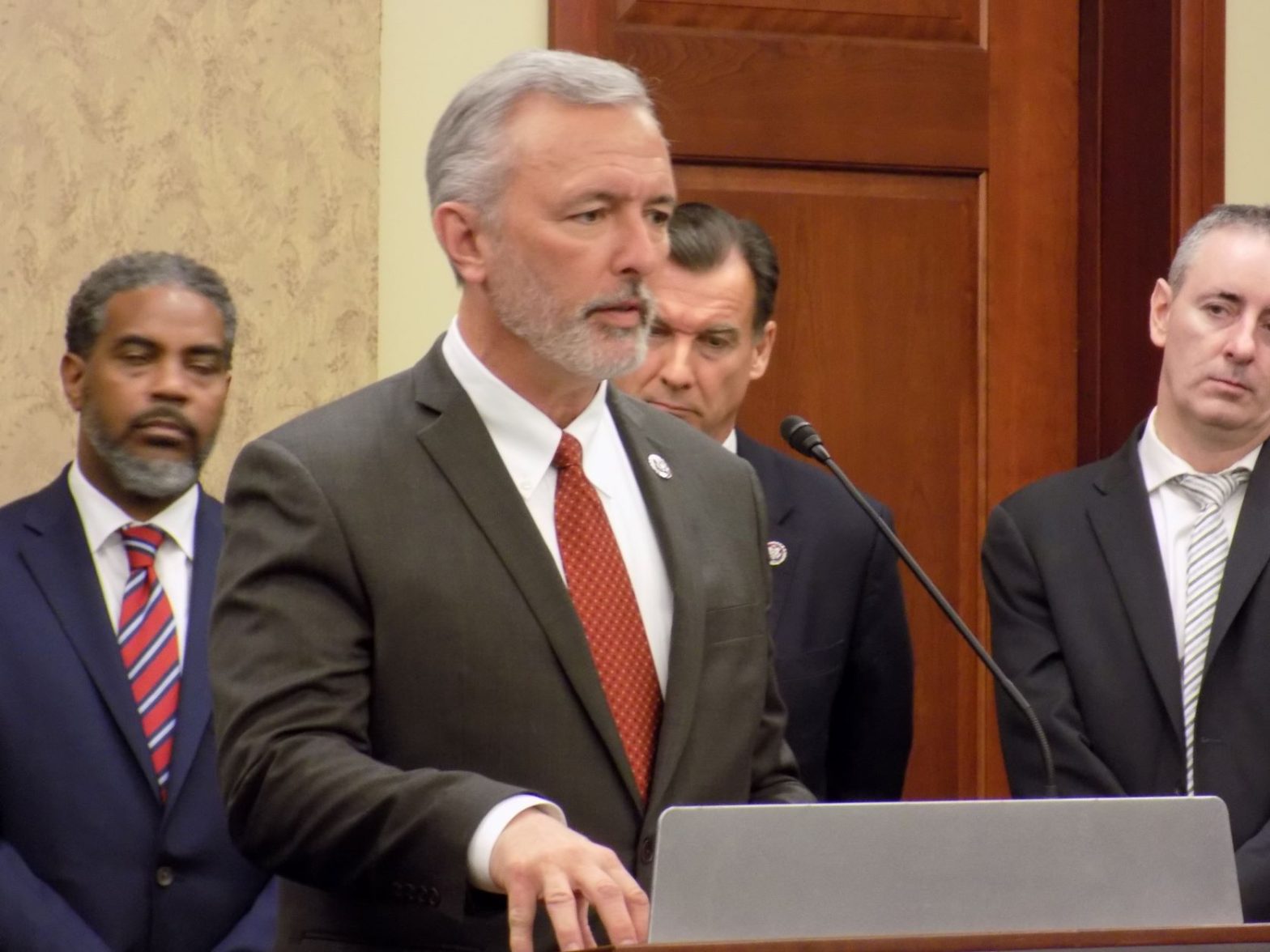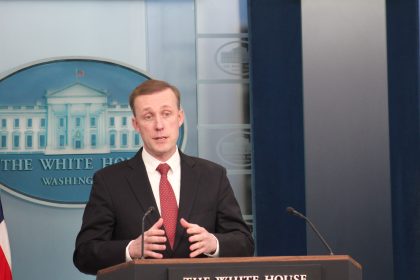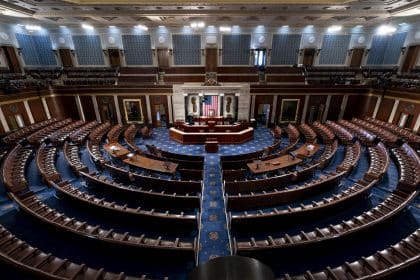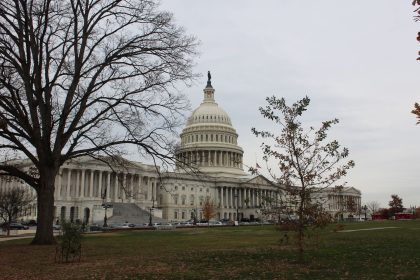Problem Solvers, Senators Renew Call for Fully Funding CHIPS Act

WASHINGTON — Before leaving town for Thanksgiving, Sens. Mark Warner, D-Va., and John Cornyn, R-Texas, joined members of the Problem Solvers Caucus to call for fully funding the CHIPS for America Act, an initiative intended to increase semiconductor production in the United States.
Their message, simply put, was that as the semiconductor shortages persist and manufacturers remain uncertain of future U.S. policy regarding production, Congress must act promptly to fund the Act, which was enacted into law in the FY 2021 National Defense Authorization Act.
“There’s probably no greater vulnerability in the United States from a national security and economic perspective than our dependency on supply chains of semiconductors that are made outside of the country, primarily Asia, and then shipped here to the United States,” Cornyn said during a press briefing last week.
“This is an example of how we solve problems, we identify problems, vulnerabilities, things that we need to do, and we get ‘em done. And we’re about halfway there and we’re looking forward to working with our friends in the House, the Problem Solvers Caucus, to get this over the finish line,” he said.
Joining the senators in a crowded conference room steps from the Capitol Visitors Center were Problem Solvers Caucus co-chairs Josh Gottheimer, D-N.J. and Brian Fitzpatrick, R-Penn., as well as Reps. John Katko,R-N.Y., Haley Stevens, D-Mich., Dan Meuser, R-Penn., Elissa Slotkin, D-Mich., and Debbie Dingell, D-Mich.
All maintained that funding the CHIPS for America Act would invigorate the economy, help secure the nation’s supply chain for a critical commodity, and jumpstart semiconductor manufacturing in communities hungry for economic development opportunities in the realm of manufacturing and advanced research.
Warner noted that in recent years, the United States has gone from manufacturing about 37% of the semiconductors produced in the world to about 12% today, and he said reversing the downward trend won’t be easy.
He estimated the cost of building a single new fabrication facility would likely top $10 billion and that private backers of such projects would surely face at least a few years of operating losses before their operations move into the black.
“If we don’t fully fund the CHIPS for America Act and provide support for these activities, I don’t think there’ll be another chip manufacturing facility built in the country,” Warner said.
“If we want to bring jobs back to American manufacturing,, if we want to guarantee the security of our supply chain, if we want to say to our allies around the world that ‘America is back in the game,’ we need to do this,” he said. “Right now, as we speak, China is putting up $150 billion to expand semiconductor manufacturing there. … South Korea is putting up $135 billion.
“We had a huge bipartisan win this past week when the president signed the infrastructure bill, and I know many in the press pursued us for months and months and months as we worked on that bill,” Warner continued. “We kept saying we’re close, but it took a lot longer than it should have. The sausage making was a lot uglier than it should have been.
“But in the end, the infrastructure bill demonstrated that we can, in a bipartisan way, get things done. Funding the CHIPs for America Act should be next on our agenda,” he said.
Fitzpatrick called the current semiconductor shortage one of the “existential” issues of our time, and said addressing that shortage in a meaningful way will now be a priority for the Problem Solvers Caucus.
“People keep asking, in terms of the caucus, ‘After infrastructure, what’s next?’ And what I tell them is ‘Semiconductor competitiveness,’” Fitzpatrick said.
“We need to reconstitute the nation’s semiconductor supply chain …. because whoever owns this industry owns the future,” he said. “And if COVID-19 taught us anything, it’s that we cannot be dependent on any foreign nation — especially hostile nations — for the things we need to survive here in the United States.”
Fitzpatrick also reminded the reporters present of what Patrick Gelsinger, CEO of Intel, told the caucus during a meeting at the Capitol last month.
“He said all the industry needs to grow and prosper is for us to allow them to compete here in the United States,” he said. “If we do, the industry will respond and we will no longer be dependent on our foreign adversaries for critical goods that we need.”
Gottheimer said the bipartisan infrastructure bill made it clear “that when we work across the aisle and put country first and when we refuse to let the perfect be the enemy of the good, we have endless opportunities to strengthen our economy, our country and our future.”
“The same treatment that we gave the infrastructure bill should apply to funding the CHIPS for American Act,” he said.
“We have an opportunity here to help America compete and to win, particularly against those who seek to do us harm,” he said.
“The shortage of microchips is not only dire for our economy, it goes right to the heart of our national security … growing our domestic semiconductor manufacturing capacity is critical,” Gottheimer added.
Katko, one of the original co-sponsors of the CHIPS for America Act in the House, picked up where Gottheimer left off, asserting as he has in the past, that “supply chain security is economic security and economic security is homeland security.”
“That’s how I look at this,” he said.
“If China decides to go after Taiwan, the leading manufacturer of semiconductors, tomorrow, what are we going to do about it? What are we going to do when China supplies or controls a huge portion of the semiconductor supply chain network?”
“That’s what we’re trying to combat against. And if anyone tells you that Congress is always dysfunctional, they’re not looking at this bill,” he said. “It is strictly bipartisan, with some common sense legislation addressing a problem that needs to be addressed. And it’s a very, very serious problem. We need this [funding] passed right away.”
Dan can be reached at [email protected] and at https://twitter.com/DanMcCue.
























